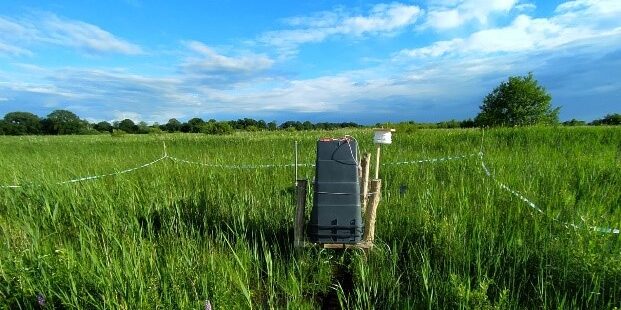Stephan Glatzel at the Department of Geography and Regional Research is leading the “PRINCESS” project.
Description: The PRINCESS project investigates the potential role of rewetting drained, nitrogen-contaminated peatlands in reducing EU-wide greenhouse gas emissions, improving wetland biodiversity while minimizing socio-economic impacts on stakeholders. Currently, ~10% of global peatlands are classified as drained or degraded, accounting for ~6% of anthropogenic GHG emissions. Paludiculture (wet agriculture/forestry) can reduce or reverse net ‘drained peatland’ greenhouse gas (GHG) emissions, resulting in carbon sequestration, reduced nitrogen mineralization, enhanced nitrogen removal, and restored peatland-specific biodiversity.
The PRINCESS project aims to provide vital scientific information for EU agricultural land use policy by evaluating the effects of rewetting under different land uses (high- and low-intensity paludiculture, wet wilderness) and nitrogen loads. It will address existing knowledge gaps related to the direct and indirect consequences of nitrogen loads on biodiversity, GHG emissions, nitrate release, and biomass yield in rewetted peatlands.
The project seeks to investigate:
- Tipping points of soil carbon and nitrogen cycling at the microcosm (µm-cm) scale,
- GHG budget estimation and controls using mesocosms,
- Real-world effects of nutrient and land use management on greenhouse gas emissions,
- Upscaling GHG estimations based on predictors,
- Socio-economic modeling based on land management options,
- Outreach and development of biodiversity, climate, water, and agricultural policies.
Collaborators: University of Vienna, University of Greifswald (Germany), University of Warsaw (Poland), University of Antwerp (Belgium), Natural Resources Institute (LUKE) (Finland), Norwegian Institute for Nature Research (NINA)
Duration: 4 years (1.2.2021 – 31.1.2025)
